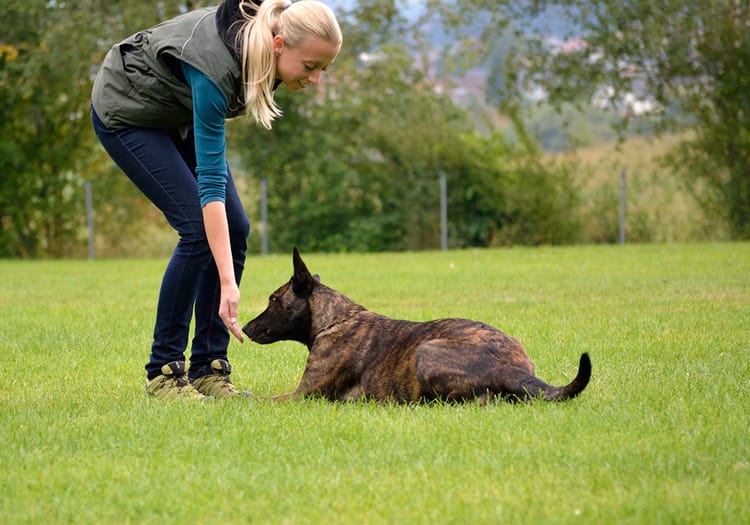5 reasons you do NOT want to become a dog trainer

‘Of course I want to become a dog trainer!’
Do you love dogs? Do you dream of working with dogs professionally? To become a dog trainer, you need to be a proficient trainer and enjoy working with dogs. But there are a few qualities that can disqualify you. Read on to see if your passion extends to training dogs, or if you might be better suited for a career in veterinary work, pet-sitting, kenneling or dog grooming.
Don’t become a dog trainer if…
…You don’t like working with people. If you’ve been a dog trainer for any length of time, you’ve probably heard someone exclaim, “It’s more about training the people than training the dogs!” I disagree with this statement (you aren’t going to make it far as a dog trainer if you aren’t able to train dogs), but the truth is that you must enjoy working with people too, if you are going to succeed. Almost every dog you work with will have a human attached — and dogs don’t write the checks or refer you to their friends!
Don’t become a dog trainer if…
…You only have one tool. If you know every dog you work with will eventually wear a certain collar, leash, harness or other contraption, you aren’t yet qualified to train dogs professionally. If you’re selling that tool as part of your income generation strategy, you are not a dog trainer — you are a training equipment salesperson. Spend a year or so learning to train dogs who are wearing no equipment at all, before you set up shop. Make it a point to learn the function of behavior, so you can successfully address the training and behavior issues your clients have, and know that you can use the appropriate tools as needed.
Don’t become a dog trainer if…
…You hate business. Most trainers who make money training dogs run their own businesses. This does not mean they do everything themselves — almost any aspect of running a business, from answering phones to marketing, can be outsourced. And some aspects of operating a dog training business, such as graphic design, accounting or liability contract review, are best done with other professionals’ help. But unless you’re taking a position within an established organization, chances are good that you’ll be wearing the entrepreneur hat as well. Your local Small Business Association can help with resources to get your dog training business running.
Don’t become a dog trainer if…
…You aren’t interested in learning something new. Dog training is the practical application of scientific theory (specifically, behaviorism). No one is born knowing about behaviorism, learning theory or applied behavior analysis. As you learn about dog behavior and the principles of behavior change, you may come up against difficult topics, or information that conflicts with what you thought you knew. If you aren’t comfortable with changing your approach to training, or changing your perception of dog behavior, you might be better off in a field that has better-understood requirements. To check your knowledge, the International Association of Animal Behavior Consultants’ Animal Behavior Consulting: Principles & Practice is an excellent, in-depth overview course for dog trainers and behavior consultants. In addition to my work with IAABC, I teach three online courses for trainers especially designed for those newer to the field.
Don’t become a dog trainer if…
…You hate networking with other dog trainers. There’s nothing wrong with being an introvert, and you don’t need to refer away your business. Rather, you want to be absolutely clear on who your client is, and the types of cases you take, so you can best serve those clients. Once you’ve established that, you’ll have plenty of opportunities to refer to other trainers. Do you teach group classes, but don’t do in-home sessions? Find a trainer who does, and swap referrals. The same goes for behavior issues such as separation anxiety, aggression, leash reactivity, and more. Talking with other training professionals also offers you the chance to learn what you don’t know. You can fill in the gaps to be even more effective at getting great results for your clients.



